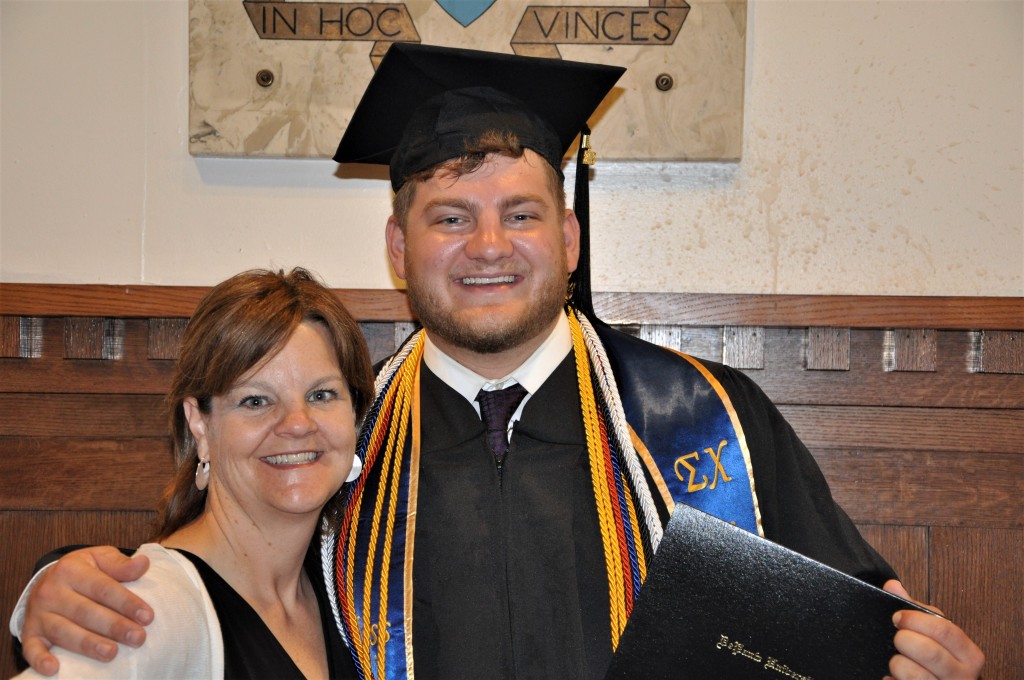
“Live your questions now, and perhaps even without knowing it, you will live along some distant day into your answers.” – Rainer Maria Rilke
Raising children offers adults a humbling opportunity to learn important life lessons, and my own journey as a mother frequently feels like a crash course in surprises. The best gifts, though, are the moments that have taken away my breath as I have watched my son step into adulthood. A simple blog post cannot honestly caputre the complexity and layers of the lessons I’ve learned from raising an independent, passionate, intelligent, empathetic, articulate man, but, collectively, a theme or pattern has emerged.
Finishing my third decade of teaching, my philosophy of teaching – of living, actually – has been deeply informed by watching my children experience life. The more immediate implication of sharing this journey with my son comes in understanding that adults cannot underestimate the power of children and young adults. And this unfolding epiphany influences the way I mentor and work with college students and has centered my professional work around progressive education. Lucas forever changed who I am as a mother, a woman, a colleague, an educator.
As a child, my second born exhibited the same strength and independence his older sister did, and yet, Lucas was and still is so incredibly different. His innate curiosity in how things work and his willingness to make mistakes enamored me and often caught me off guard. One summer afternoon, as I walked passed his bedroom, I found my five-year-old son with his door knob completely dismantled from the door and spread out on his floor. When I asked him what he was doing, he glanced up and said non-chalantly, “I wanted to see how it works.” How can a mother argue with that?
However, Lucas’ gregarious personality – desire for fun – his carefree spirit distracted me from thinking about the depth of his passions and interests. I marveled at how effortlessly he made earning good grades and performing well as an athlete at our small rural school, but I worried that he was not developing a solid work ethic. Honestly, I thought I was an expert at adolescents; after all, my entire teaching career has been working alongside young adults at the secondary or post-secondary levels. And I have never been more wrong.
Lucas chose to attend a university with a reputation for excellent academics, alumni involvement, active social life with the majority of students in Greek life, and quite a bit of swagger. In retrospect, I wonder why I questioned my son’s ability to do well in that environment. Perhaps Lucas’ own teachers’ opinions had swayed me from recognizing his drive – his desires – his goals. For thirteen yeasr, every teacher conference would include statements like “Your son has so much potential, but he likes to talk or he is distracted” or “He has natural talent, but he doesn’t like the rules.”
Each semester, as Lucas earned impressive grades, made the dean’s list, and made his way through his studies in computer science and economics, I realized that our schools had failed to meet Lucas’ needs. They had tried to fit my free-thinking, inquisitive, risk-taking child into their rows of desks and worksheets. He had played the game of school well enough to graduate at the top of his class, but his intellect and inquisitive nature had not been fed. He had not been allowed to investigate big questions that perhaps have no answer. He had not had the opportunity to explore how things work or why humans respond the way they do to others.
The greatest lesson I have learned in the school of parenthood has seriously altered the way I think about teaching and about preparing the next generation of teachers. Lucas taught me that the best thing we can do for children and young adults is foster their sense of curiosity. As adults, we have to listen to them – to empower them – to give them the opportunities to struggle, fail, and try again – to get out of their way.


